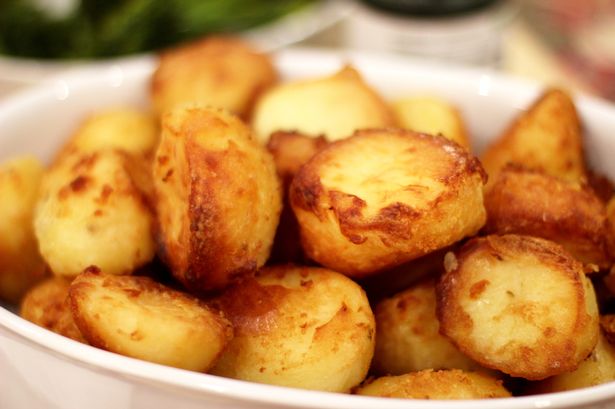Achieving the perfect roast potato, a cornerstone of the quintessential Christmas dinner, is a culinary pursuit fraught with potential pitfalls. While visions of golden-brown, shatteringly crisp exteriors and fluffy, yielding interiors dance in our heads, the reality often falls short, leaving us with disappointingly soggy or unevenly cooked spuds. One common, yet often overlooked, mistake stands between us and roast potato perfection: neglecting the crucial step of properly preparing the potatoes before roasting. This seemingly minor oversight can have a significant impact on the final outcome, hindering the development of that coveted crispiness and compromising the overall flavor and texture of the dish.
The journey to roast potato nirvana begins with selecting the right variety of potato. While personal preference plays a role, certain varieties are naturally better suited for roasting due to their higher starch content. Maris Piper, King Edward, and Desiree are classic choices, known for their ability to achieve a fluffy interior and crispy exterior. Avoid waxy potatoes like Charlotte or Jersey Royals, as their lower starch content predisposes them to sogginess rather than crispiness. Once the appropriate potatoes are selected, the preparation process becomes paramount. Thoroughly washing and peeling the potatoes is the first step. While some prefer to leave the skins on for added texture and nutrients, peeling ensures even cooking and allows for maximum surface area to crisp up in the oven.
After peeling, the next crucial step is cutting the potatoes into uniformly sized pieces. This ensures even cooking and prevents some pieces from being overcooked while others remain underdone. Aim for pieces that are roughly the same size and shape, ideally around 2-3 inches in diameter. Inconsistent sizes lead to uneven cooking, with smaller pieces burning before larger ones have a chance to develop their crispy exterior. Following the cutting process, the potatoes should be parboiled, a step often skipped but absolutely essential for achieving optimal crispiness. Parboiling involves boiling the potatoes in salted water for a specific amount of time, typically around 8-10 minutes depending on the size of the pieces. This process partially cooks the potatoes, softens the edges, and creates a starchy surface that is primed for crisping up in the oven.
The magic of parboiling lies in its ability to gelatinize the starch on the surface of the potatoes. This gelatinization creates a sticky layer that, when exposed to the hot oven air, transforms into a beautifully crisp and golden-brown crust. To maximize this effect, after draining the parboiled potatoes, it’s beneficial to gently roughen the edges by shaking them in the colander or giving them a light toss in a bowl. This creates more surface area for the fat to cling to, further enhancing the crispiness. The choice of fat is also a critical factor in achieving roast potato perfection. While traditionalists may opt for goose fat or dripping for their rich flavor, vegetable oil, olive oil, or even duck fat can also be used with excellent results. The key is to use a fat that can withstand high temperatures without burning.
Once the parboiled and roughened potatoes are ready, they are tossed in the chosen fat, ensuring that each piece is evenly coated. Seasoning with salt, pepper, and any other desired herbs or spices adds depth of flavor. Spreading the potatoes in a single layer on a roasting tray is crucial for even cooking and maximum crispiness. Overcrowding the pan prevents hot air from circulating properly, resulting in steamed rather than roasted potatoes. The roasting process itself requires a hot oven, typically preheated to around 400-425°F (200-220°C). The potatoes should be roasted for approximately 45-60 minutes, or until they are golden brown and crispy, turning them occasionally to ensure even browning.
The final result should be roast potatoes that are a masterpiece of texture and flavor: a shatteringly crisp exterior giving way to a fluffy and perfectly cooked interior. Each bite should be an explosion of taste and texture, a testament to the careful attention paid to each step of the process. By understanding the science behind roast potato perfection and avoiding the common pitfall of skipping the parboiling stage, you can elevate this humble side dish to a culinary triumph, ensuring that your Christmas dinner is one to remember. The extra effort invested in properly preparing the potatoes will be richly rewarded with a plate of golden-brown, crispy perfection that will impress even the most discerning palate. The satisfaction of biting into a perfectly roasted potato, the culmination of careful preparation and meticulous execution, is a culinary experience that elevates the Christmas dinner to a truly special occasion.














